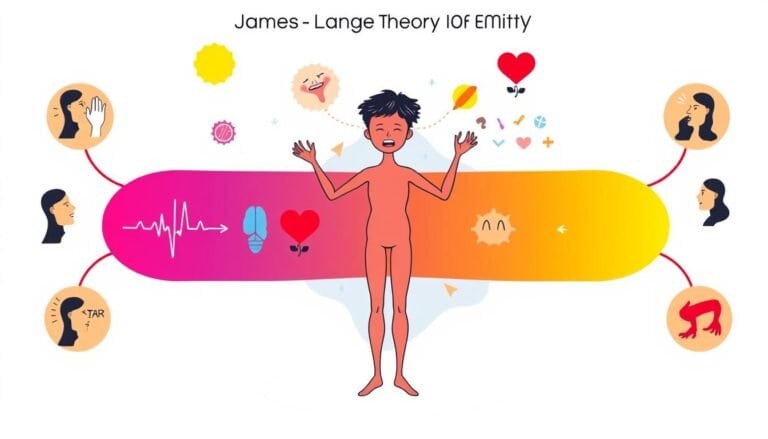Understanding Type 2: The Helper Personality
Welcome to our exploration of Type 2: The Helper in the Enneagram system. Type 2 individuals are known for their caring, supportive, and empathetic nature. They possess a strong desire to be loved and appreciated, which drives their actions and interactions with others. Twos thrive when given the opportunity to be helpful and make a positive impact on the lives of those around them. Let’s delve deeper into the personality traits and characteristics of Type 2: The Helper.
Key Takeaways:
- Type 2 individuals, also known as The Helper, are caring, supportive, and empathetic.
- Twos have a strong desire to be loved and appreciated, which motivates their actions.
- The Helper personality excels in building relationships and finding fulfillment through helping others.
- It is important for Twos to prioritize self-care, set boundaries, and recognize their own emotional needs.
- Type 2s can experience personal growth by becoming more conscious of their motives and practicing transparency.
Type Two Overview
Twos, also known as The Helper, are the most helpful and invested in being seen as helpful. They are genuinely caring and go out of their way to support others. Twos find meaning in love, closeness, sharing, family, and friendship. They have a strong desire to be loved and appreciated, which motivates their actions. When healthy, Twos are loving, helpful, generous, and considerate. They warm others with their appreciation and attention, helping them recognize positive qualities in themselves. Healthy Twos embody the ideal of a nurturing parent, offering love, compassion, and support.
Here is an overview of the Type Two traits:
- Caring and supportive
- Genuinely helpful
- Invested in being seen as helpful
- Desire to be loved and appreciated
- Find meaning in love, closeness, sharing, family, and friendship
Twos are driven by their deep empathy and compassion for others. They thrive when they can express their love and support, making a positive impact on those around them. Twos are natural caretakers and nurturers, always ready to lend a helping hand and provide emotional support.
“I’m happiest when I can make a difference in someone’s life and be there for them in times of need. Seeing others happy and knowing I played a part in it brings me a sense of fulfillment.” – A Type Two Individual
It’s important to note that Twos can have different levels of health, and gaining a deeper understanding of their motivations can help them develop healthier relationships and boundaries.
Now, let’s take a closer look at the healthy, average, and unhealthy levels of Type Two and how they manifest in different aspects of their lives.
| Healthy Levels of Type 2 | Average Levels of Type 2 | Unhealthy Levels of Type 2 |
|---|---|---|
|
|
|
The Healthy Levels of Type 2
At the healthy levels, Twos become deeply unselfish, humble, and altruistic. They give unconditional love to themselves and others, considering it a privilege to be in the lives of others. They are empathetic, compassionate, caring, and concerned about the needs of others. Healthy Twos are encouraging, appreciative, and able to see the good in others. They are nurturing, generous, and truly loving individuals.
| Characteristics of Healthy Twos |
|---|
| Deeply unselfish and altruistic |
| Give unconditional love |
| Empathetic and compassionate |
| Caring and concerned about the needs of others |
| Encouraging and appreciative |
| Able to see the good in others |
| Nurturing and generous |
| Truly loving individuals |
The Average Levels of Type 2
At the average levels, Twos are driven by the desire to be closer to others. They may become overly friendly, emotionally demonstrative, and focused on gaining approval and love. Their motivations are rooted in their deep need to feel wanted and appreciated. Twos engage in people-pleasing behavior, going above and beyond to fulfill the needs of others, often at the expense of their own well-being.
Their actions are driven by a strong desire for validation, seeking approval as a way to validate their self-worth. They often sacrifice their own needs and desires for the sake of others, neglecting their own emotional well-being. Twos can have high expectations of others, requiring constant reassurance and affirmation.
When their efforts are not acknowledged or appreciated, Twos may feel secretly angry and resentful, even though they outwardly express love and care. This undercurrent of unacknowledged emotions can disrupt their relationships and reveal the inauthenticity of their claims about love.
“I always put others before myself. I want to be there for everyone and make them happy. But sometimes I feel like I’m not truly being seen or appreciated. It’s frustrating and makes me question the authenticity of my relationships.” – Anonymous Type 2
To visually represent the average levels of Type 2 characteristics, here’s a comparison chart:
| Average Levels of Type 2 | The Helper’s Motivations | Behavior |
|---|---|---|
| Desire for closer relationships | Seeking approval and validation | People-pleasing behavior |
| Focusing on gaining love | High expectations and unacknowledged emotional needs | Secret anger and resentment |
The Average Levels of Type 2 demonstrate the Helper’s motivations and people-pleasing behavior in their pursuit of love and approval from others. However, it is crucial for Twos to recognize their own emotional needs and establish healthy boundaries to maintain authentic and fulfilling relationships.
The Unhealthy Levels of Type 2
At the unhealthy levels, Twos can exhibit manipulative behavior and engage in self-serving actions. They have a tendency to instill guilt in others, utilizing emotional manipulation to fulfill their own needs. Unhealthy Twos may resort to abusing food and medication as coping mechanisms, seeking sympathy and attention from those around them. They often undermine others and make belittling remarks, attempting to maintain a sense of control and superiority.
As the shadow side of Type 2 emerges, they become self-deceptive about their motives, concealing their true intentions behind a facade of selflessness. Unhealthy Twos frequently engage in aggressive or selfish behavior, disregarding the well-being of others. They may feel victimized and resentful, projecting their frustrations onto those they interact with. This internal turmoil can manifest as somatic symptoms and chronic health problems, as the body absorbs the emotional distress.
It’s important to note that unhealthy Twos align with specific personality disorders such as Histrionic Personality Disorder and Factitious Disorder, where the manipulative and attention-seeking behaviors become more pronounced and systematic.
“At the unhealthy levels, Twos become consumed by their own needs, compromising their relationships and the authenticity of their claims about love.” – Expert Psychologist
| Unhealthy Behaviors of Twos | Manifestations |
|---|---|
| Manipulative Behavior | Twos display manipulative tendencies, using guilt and emotional leverage to control others. |
| Self-Serving Actions | Twos prioritize their own needs above others, seeking personal gain and validation. |
| Undermining Others | Unhealthy Twos belittle and undermine those around them to maintain a sense of superiority. |
| Aggressive or Selfish Behavior | Unhealthy Twos may engage in aggressive or self-centered actions, disregarding the well-being of others. |
| Somatic Symptoms and Chronic Health Problems | The emotional distress experienced by unhealthy Twos can manifest as physical symptoms and chronic health conditions. |
Enneagram 2 Wings
Twos, also known as The Helper, can have different wings that influence their personality traits and behaviors. The two possible wings for Type 2 personalities are the one-wing (2w1) and the three-wing (2w3). Let’s explore the characteristics of each wing:
1. 2w1: The Principled Altruist
Twos with a one-wing are principled, altruistic, and have a strong sense of right and wrong. They are driven by their desire to help others and make a positive impact. These individuals are often objective and have a clear moral compass. However, when unhealthy, they may become self-critical and controlling, striving for perfection in their acts of service.
2. 2w3: The Sociable Achiever
Twos with a three-wing are sociable, self-assured, and ambitious. They thrive in social settings and enjoy gaining recognition for their helpfulness. These individuals are confident and driven to achieve success. However, when unhealthy, they can become deceptive, manipulative, and overly concerned with maintaining their image. Vanity and a desire for validation may overshadow their genuine intentions.
Understanding these different wings gives us insight into the nuances of Type 2 personalities. It highlights how their motivations and behaviors can vary depending on their dominant wing. By recognizing these characteristics, we can gain a deeper understanding of the complex nature of Enneagram 2 individuals.
Enneagram Type 2: At Work
In the workplace, Twos, also known as The Helper, bring their caring and supportive nature into play. They prioritize relationships and seek approval from others, making them valuable team players. With their empathetic and nurturing qualities, Twos excel in roles that allow them to be helpful and supportive. They willingly take on extra work to support their colleagues and contribute to the success of the team.
Twos are known for their ability to build relationships and create welcoming environments. They have a natural talent for connecting with others and making them feel seen and appreciated. In team settings, Twos are the ones who create a sense of cohesion and harmony, fostering collaboration and cooperation among team members.
One of the key strengths of Twos in the workplace is their dedication to supporting others. They genuinely care about the well-being of their co-workers and go out of their way to offer assistance and support. They are always ready to lend a helping hand and provide emotional support when needed.
“Twos thrive in work environments where they can make a meaningful contribution and have a positive impact on others.”
Twos are great listeners and they have a keen sense of understanding others’ needs. This ability allows them to offer practical solutions and support to their colleagues. They are often the go-to person for advice, guidance, and a compassionate ear.
It is worth noting that Twos can sometimes struggle with setting boundaries in the workplace. Because they prioritize relationships and seek approval, they may take on too much responsibility or struggle to say no. This can lead to burnout and exhaustion if not managed properly.
Contribution and Collaboration
In team projects, Twos play a crucial role in fostering collaboration and creating a positive working environment. They contribute by:
- Offering support and encouragement to team members
- Facilitating open communication and resolving conflicts
- Recognizing and appreciating the contributions of others
- Providing emotional support and motivation
- Going the extra mile to ensure the team’s success
Twos bring a sense of warmth and empathy to the workplace, creating a supportive and inclusive atmosphere. Their ability to build strong relationships and their genuine desire to help others make them valuable assets in any work environment.
| Strengths | Challenges |
|---|---|
|
|
Real-Life Example: Jane’s Impact
Meet Jane, a Type 2 in the workplace. Jane works as a human resources manager in a large company. Her colleagues describe her as a warm and caring person who always goes the extra mile to support them. Jane takes the time to listen to her team members’ concerns, providing a safe space for them to express themselves.
In team meetings, Jane is known for her ability to foster collaboration and ensure everyone’s voices are heard. She creates an inclusive environment where all team members feel valued and appreciated. Jane’s emphasis on connection and empathy has contributed to a positive and productive work culture in her department.
Jane’s impact extends beyond her team. She actively seeks opportunities to contribute to company-wide initiatives and has been involved in organizing charitable events. Jane’s dedication to helping others has made her a respected and admired figure in her workplace.
Famous Enneagram Type 2s
Some well-known individuals who exemplify the caring, supportive, and empathetic qualities of Type 2 personalities include:
- Dolly Parton
- Mother Teresa
- Jimmy Carter
- Nancy Reagan
- Maya Angelou
These famous Enneagram Type Twos have made a significant impact on the world through their nurturing spirits and selfless actions.
These individuals make tremendous efforts to support and uplift others, and their influence resonates far and wide.
Type 2s in Relationships
Type Twos, also known as The Helper, bring their caring and supportive nature into romantic relationships. They prioritize their partner’s needs and seek approval from them. Twos have a deep desire to be loved and valued, which often motivates their actions within the relationship. They thrive on providing support and assistance to their partner, going above and beyond to ensure their happiness.
However, Twos can sometimes struggle with setting boundaries in relationships. Their strong need for approval and fear of rejection can lead them to become overly involved or enmeshed in their partner’s life. They may struggle to prioritize their own emotional needs and may neglect self-care in favor of pleasing their partner.
Recognizing their own emotional needs and practicing self-love is essential for Twos in relationships. It is important for them to understand that their worth is not solely defined by their partner’s approval. Twos need to establish and communicate their boundaries, ensuring that their own needs and well-being are taken into consideration.
The Helper’s Approach to Romantic Relationships:
- Prioritizing Partner’s Needs: Twos prioritize their partner’s needs and go above and beyond to provide support.
- Seeking Approval: Twos have a strong desire for their partner’s approval and validation.
- Struggle with Setting Boundaries: Twos may find it challenging to set boundaries and can become overly involved in their partner’s life.
- Fear of Rejection and Abandonment: Twos have a fear of rejection and may struggle with abandonment issues in relationships.
- Importance of Self-Love: Twos need to recognize their own emotional needs and practice self-love in order to maintain a healthy balance in relationships.
Type 2 Blindspots
When it comes to their own well-being, Type Twos, or the Helpers, often neglect their own self-care. Their natural inclination to prioritize the needs of others can lead to a lack of focus on their personal needs. This can result in Twos repressing their own emotional needs and struggling to set boundaries.
Unaware of their motives, Twos may unknowingly engage in manipulative behavior, seeking validation and approval from others. This pattern can be detrimental to their own growth and can strain their relationships.
“Twos may find it challenging to be transparent about their own struggles and recognize when they need help from others.”
Recognizing these blindspots is crucial for Twos to maintain their own well-being and develop healthier behaviors. They must strive to be transparent about their own struggles and seek support when needed.
Unhealthy Behaviors of Twos:
- Repressing their own emotional needs
- Struggling to set boundaries
- Engaging in manipulative behavior
By acknowledging these blindspots and actively working on self-care and boundary-setting, Twos can foster personal growth and build healthier, more authentic relationships.
Development Opportunities for Type 2s
As Type Twos, also known as The Helper, strive to support and care for others, they also have unique opportunities for personal growth and development. By focusing on specific areas such as practicing self-care, setting boundaries, and understanding their own motives, Twos can enhance their overall well-being and lead more fulfilling lives.
Practicing Self-Care
An essential development opportunity for Type Twos is to prioritize self-care. Twos often devote their energy to meeting the needs of others, sometimes neglecting their own well-being in the process. By recognizing the importance of self-care, Twos can recharge and replenish themselves, enabling them to continue supporting others from a place of strength and resilience.
Setting Healthy Boundaries
For Twos, establishing healthy boundaries is crucial for maintaining balance and preventing burnout. By setting boundaries, Twos can protect their own emotional well-being and prevent themselves from becoming overly enmeshed or overly dependent on others. This empowers Twos to nurture relationships that are based on mutual respect and reciprocity.
Understanding Motives
Twos have an innate desire to be loved and appreciated, which can sometimes influence their motivations when helping others. Development opportunities arise when Twos gain a deeper awareness of their own motives, ensuring that their actions are driven by genuine care rather than a need for approval or validation. By becoming more conscious of their intentions, Twos can cultivate authentic connections and build healthier relationships.
“To truly help others, we must first take care of ourselves. Recognizing our own needs and setting boundaries allows us to be more present and effective in our support.”
Summary
Development opportunities for Type Twos include practicing self-care, setting healthy boundaries, and understanding their motivations for helping others. By prioritizing their own well-being, Twos can better support others from a place of authenticity and cultivate deeper, more meaningful connections.
Conclusion
Type 2, also known as The Helper, is a personality type characterized by their caring, supportive, and empathetic nature. They have a strong desire to be loved and appreciated, which drives their actions and relationships. Twos excel in nurturing and being there for others, but it is crucial for them to prioritize self-care, establish healthy boundaries, and recognize their own emotional needs.
In order to maintain healthy relationships and personal growth, Twos must strike a balance between their selfless nature and their own well-being. It is important for them to take time for themselves, communicate their needs openly, and avoid neglecting their own self-care. By doing so, Twos can continue to thrive in their caring role while also nurturing their own emotional health.
Understanding the Helper personality is essential for fostering meaningful connections with Twos. Their genuine care and willingness to go the extra mile to support others make them invaluable in relationships. By appreciating their efforts and reciprocating their love, we can create a mutual bond of love and understanding.






